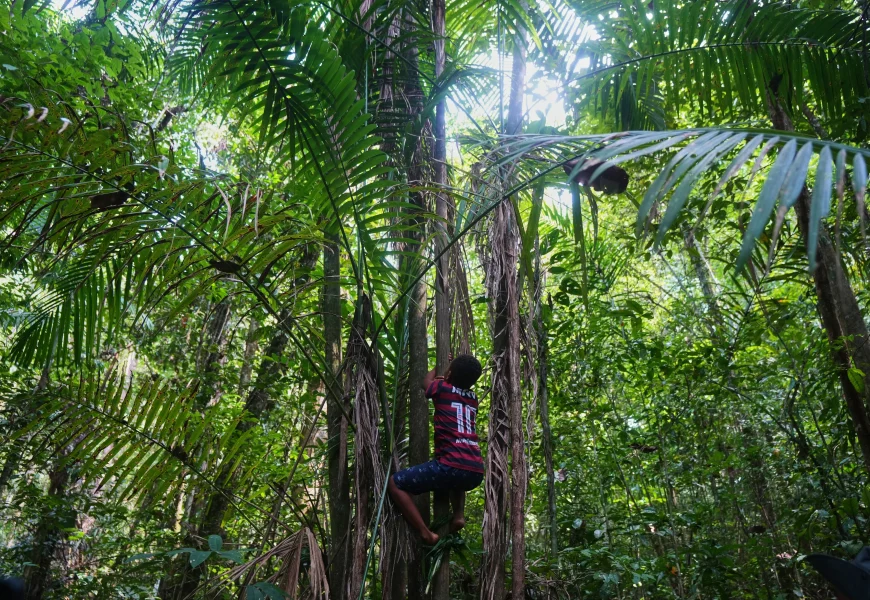BELEM, Brazil (AP) – Zaqueu Belém Araújo cuts a leaf from an acai tree and skillfully folds and twists it, tying one end to the other to form a strong ring. He takes off his sandals, puts his bare feet into the palm ring and quickly pulls himself up the tree trunk to reach a branch of the coveted fruit.
Communities of slave descendants in Brazil demand recognition of territories
BELEM, Brazil (AP) – Zaqueu Belém Araújo cuts a leaf from an acai tree and skillfully folds and twists it, tying one end to the other to form a strong ring. He takes off his sandals, puts his bare feet into the palm ring and quickly pulls himself up the tree trunk to reach a branch of the coveted fruit.
This is how the acai berry has been harvested for generations in Brazilian quilombos, communities of descendents of runaway slaves. The minimally invasive technique doesn’t hurt the trees and helps keep Amazon forests standing.
“We understand that keeping the forest alive also keeps us alive,” said Erica Monteiro, one of the about 500 residents of Itacoa-Miri, a community of unpaved streets about 40 minutes away by boat from the sprawling city of Belem, where U.N. climate talks are being held.
Over the course of the climate conference, which began early this month and is scheduled to end on Friday, both residents of quilombos and Indigenous peoples have been pushing for the government to issue more land titles, which they see as key to defending their rights and protecting the ecosystems where they live.

